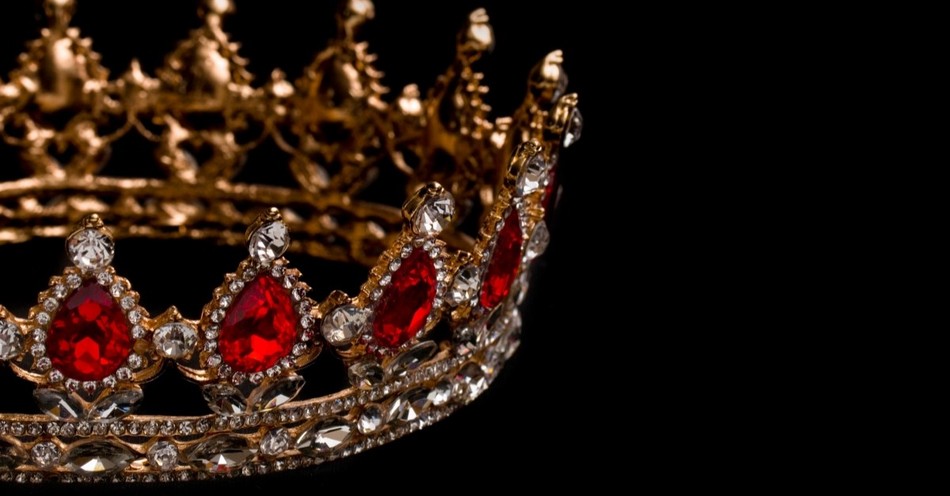You may think you know everything about Abram/Abraham. You may think you know all there is to know about Abram’s nephew Lot (the guy from the Sodom and Gomorrah incident). But I’m betting you don’t remember the time Lot got kidnapped by a vicious king who went by the name Cherdorlaomer…and how Abram had to come to his rescue.
Today, we’ll uncover the person of Cherdorlaomer—the feared king—and just how Abram defeated him after all the other powerful rulers of the day couldn’t withstand him. Of course, we will dive into what life lessons we can glean from him. Let’s dive in.
Where Do We See Cherdorlaomer in the Bible?
Cherdorlaomer, sometimes called Kerdorlaomer, appears in Genesis 14. It mentions him as a king of the land called Elam at the time. We know that Elam’s territory is modern-day Iran.
We can often think of Elam as having very close ties with Mesopotamia. Ur eventually took over the people of Elam for some time.
Interestingly, the line of succession seemed to be passed down to women. Nevertheless, Scripture seems to imply that the kings were still powerful enough to do some damage.
They did enough damage to become a player on the world stage until the Babylonians swept in and crushed any efforts.
Unfortunately, we don’t know much else about him. Because this kingdom was so old, there weren’t many archaeological finds. We know that he probably wasn’t a very nice guy from the actions we see in the Bible; we know that many kingdoms were tooth-and-nail during this period. This is part of why God set Abram and the Israelites apart. He wanted a nation that wasn’t structured like the others, built on so much bloodshed and conquest.
In terms of what Elam and Cherdolaomer did in Genesis 14 . . . well . . . he intimidated many nations. He went against the kings of Sodom, Gomorrah, Adma, Zoar, and Zeboyim. You may recognize the names of two of those nations. Sodom and Gomorrah don’t last much longer beyond this story. The people had plunged into sins so heinous that God wiped them out from the face of the earth.
As with the history of many vassal kingdoms, the lesser kingdoms eventually rebelled against Elam’s tyranny. Subsequently, the king decided to siege the cities and take some of the residents captive.
This enters another important character into the scene.
What Did Cherdorlaomer Do to Lot?
You may be familiar with Lot. As mentioned before, he is the nephew of Abram (later Abraham). And he often made selfish decisions. Notably, he decided to pick rich land for his descendants (leaving Abraham with less ideal land), which landed him in Sodom and Gomorrah.
Later, he loses his wife to the decimation of Sodom and Gomorrah. But before that happens, he gets caught in the crossfire of the invasions Cherdolaomer performed.
This meant that he got kidnapped.
Why Lot? We have to look at the Babylonian captivity for clues on this. When kings invaded, they tended to take the richest and most handsome men (i.e., the best spoils of battle).
Therefore, we do know that Lot had a lot of wealth. Scripture mentions that the king took away his possessions as well.
Someone escapes this and sends word to Abraham (Abram at the time) about his nephew getting kidnapped. Abram doesn’t let this stand and decides he needs to take action. He goes toe-to-toe with the king all the other rulers feared.
How Did Abram Defeat Cherdolaomer?
Abram gathered 318 men to pursue the king’s armies. Apparently, this was intimidating enough for them to flee.
Abram keeps chasing them past northern Damascus. Either the men get too tired or decide that Lot isn’t worth it, so they let Abram recover Lot and his possessions.
This works in Abram’s favor. The kings of the land respect him and make alliances with him. However, two of the kingdoms are destroyed a few chapters later, so we know that some of these alliances won’t last.
You may slightly recognize what happens right after this. A certain odd character, known as Melchizedek, pops onto the scene. He brings out bread and wine, and Abram gives him a tithe of ten percent of everything.
We know Melchizedek from the word Salem, the kingdom he was in charge of (and the company that produces Crosswalk.com and sister website articles). We also know that Jesus comes from the priestly line of Melchizedek. He’s a confusing figure because some people have argued that he’s possibly a Christophany—i.e., Jesus visiting in the Old Testament before he was incarnate in the New Testament.
We also learned the concept of tithing from Abraham, giving ten percent to Melchizedek. Although tithing is mentioned in other sections of the Bible, the typical ten percent comes from this particular passage.
All to say, Abram’s standing up to Cherdolaomer put many important events into play. This would not have happened had the king not become selfish with his need to put certain kingdoms in their place. If Abram had not rescued Lot, he wouldn’t have met Melchizedek, and we would’ve missed an important part of Christ’s lineage.
What Can We Learn from Cherdolaomer in the Bible?
Obviously, Cherdolaomer is someone we wouldn’t want to be like. Although he may have had a strong kingdom under him, it eventually collapsed. Not to mention, one man (and a 318 skilled men army) thwarted him when other kings could not.
Here are some takeaways we can learn from the story of Cherdolaomer.
1. God wants his people to be set apart
When we look at the kingdoms of the Old Testament, we see so much bloodshed, conquest, and mistreatment of captives. God had intended Israel to be set apart for this reason. We saw what sin did to the nations when Sodom and Gomorrah fell. Hence, God called Abram to something higher and greater than he could’ve imagined.
2. God is stronger than all the kingdoms
Elam probably thought they were the top dog until Babylon entered the scene. The same happened when the Persians took over Babylon. The Greeks laid waste to Persia…and the list goes on.
We can often see powerful kingdoms and experience fear. But God is stronger than all of them and will outlast them all. We only need to trust in him for the time being. Nothing done in darkness will hide from the light. Eventually, sins will have consequences with evil nations.
3. God uses scary events to make important gestures
Had Abram not gathered his courage and pursued the intimidating king, he would’ve never met with the king of Salem and wouldn't have made powerful alliances with kings.
God often uses our scariest moments to bring beautiful results. Like Abram, we should trust in him and his timing.
Maybe today, you find yourself going against a Chedorlaomer. Maybe all the other “kingdoms” are intimidated by it. Maybe it’s a potential layoff. Maybe it’s sharing faith with a family member.
We all “face our giants” in a way. The beauty is that we do not have to face them alone. God is with us, just as he was with Abram.
Photo Credit:©GettyImages/pamela_d_mcadams
Hope Bolinger is an acquisitions editor at End Game Press, book editor for hire, and the author of almost 30 books. More than 1500 of her works have been featured in various publications. Check out her books at hopebolinger.com for clean books in most genres, great for adults and kids. Check out her editing profile at Reedsy.com to find out about hiring her for your next book project.
This article is part of our People of Christianity catalog that features the stories, meaning, and significance of well-known people from the Bible and history. Here are some of the most popular articles for knowing important figures in Christianity:
How Did the Apostle Paul Die?
Who are the Nicolaitans in Revelation?
Who Was Deborah in the Bible?
Who Was Moses in the Bible?
King Solomon's Story in the Bible
Who Was Lot's Wife in the Bible?
Who Was Jezebel in the Bible?
Who Was the Prodigal Son?









